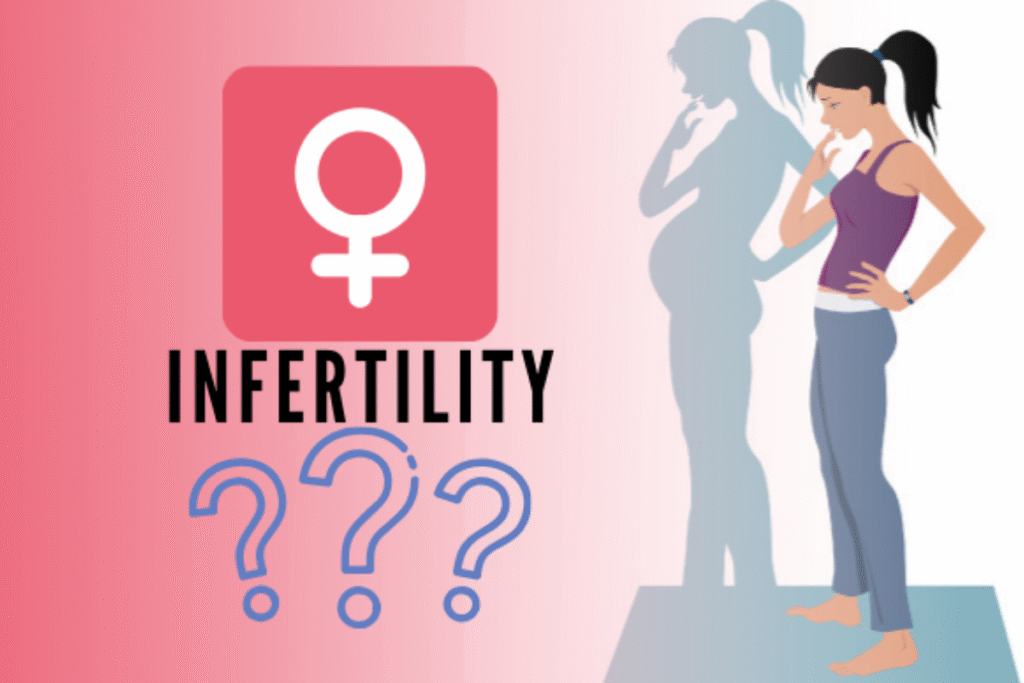It can be quite stressful and distressing to struggle to conceive. You are not alone if you have been unsuccessful in your attempts to conceive. Millions of women throughout the world struggle with infertility, but the first step to a cure is figuring out what causes it. What is, then, the most common reason women struggle to conceive?
Comprehending Infertility in Women
Doctors define female infertility as the inability to conceive after a year of regular, unprotected sex—or six months if the woman is over 35. Numerous factors that impact the reproductive system can cause it. Although factors like age and lifestyle choices are important, medical disorders are frequently the root cause of problems.
The Most Typical Reason: Ovulation Issues
The most prevalent cause of female infertility is ovulatory abnormalities, particularly Polycystic Ovary Syndrome (PCOS). These conditions make it harder to conceive because they alter the timing and manner in which eggs are released from the ovaries.
Up to 10% of women who are of reproductive age have PCOS. Multiple tiny cysts on the ovaries, increased levels of androgens (male hormones), and irregular or absent ovulation are its defining characteristics. Although PCOS is often quiet and only identified when a woman has problems becoming pregnant, it can also cause weight gain, acne, and excessive hair growth in women.
There would be no egg for sperm to fertilize in the absence of regular ovulation. One of the biggest challenges to naturally becoming pregnant is this disturbance in the menstrual cycle.
Additional Typical Reasons for Female Infertility
Although ovulatory problems are the most common cause, there are other important contributing factors as well:
• Endometriosis: This disorder causes tissue that resembles the lining of the uterus to proliferate outside of it, resulting in inflammation and scarring that may obstruct the fallopian tubes.
• Tubal Blockage: This condition is frequently brought on by ectopic pregnancies, prior operations, or infections such pelvic inflammatory disease (PID).
• Cervical or uterine problems, including as fibroids, polyps, or birth defects that prevent implantation.
When the ovaries cease to function normally before the age of forty, it is known as primary ovarian insufficiency (POI).
• Lifestyle Elements: Chronic stress, obesity, excessive alcohol consumption, and smoking can all affect fertility.
Signs to Look Out for
Many women are unaware of the issue until they attempt to conceive. Nonetheless, a few symptoms may be early warning indicators:
- Missed or irregular periods
- Acne or thinning hair;
- Painful periods or pelvic pain;
- Sudden weight gain or trouble decreasing weight;
- Excessive body or face hair
- It’s worthwhile to talk to your doctor about any of these symptoms, particularly if you’ve been trying to conceive for several months without success.
Identification and When to Get Assistance
You should see a fertility specialist if you are under 35 and have been trying to conceive for more than a year (six months if you are over 35). Ovulatory abnormalities are usually diagnosed using a combination of:
Tests on blood to measure hormone levels
Monitoring ovulation patterns and using ultrasound to inspect the ovaries
Early detection is essential. By determining the reason of infertility, medical professionals can create a treatment plan that is specific to your needs and situation.
Hope via Therapy
Thankfully, PCOS is one of many ovulatory illnesses that can be effectively treated. Among the possible treatments are:
• Modifications to lifestyle: Exercise, food, and weight loss
• Hormone therapy to regulate reproductive hormones; • Assisted reproductive technologies (ART) such as in vitro fertilization (IVF) or intrauterine insemination (IUI); • Drugs to promote ovulation, such as letrozole or Clomid;
Many women who previously thought they couldn’t conceive now have optimism because to advancements in fertility research.
In conclusion
You may take charge of your fertility journey by being aware of the ovulatory problems that are the most common cause of female infertility. The path may be difficult, but there are alternatives. Many women go on to have safe pregnancies with the correct treatment plan, lifestyle modifications, and medical assistance. Your future family may depend on you finding answers now.
FAQs:
The most common cause is ovulatory dysfunction, especially polycystic ovary syndrome (PCOS). Women with PCOS may not ovulate regularly, which makes it harder to conceive naturally.
Doctors typically use blood tests to check hormone levels, ultrasounds to examine the ovaries, and track menstrual cycles to identify irregularities in ovulation.
Yes. Treatment options include lifestyle changes, medications like Clomid or letrozole to induce ovulation, and in some cases, assisted reproductive technologies like IVF
If you’re under 35 and haven’t conceived after 12 months of unprotected sex, or over 35 and haven’t conceived after 6 months, it’s time to consult a fertility specialist.


